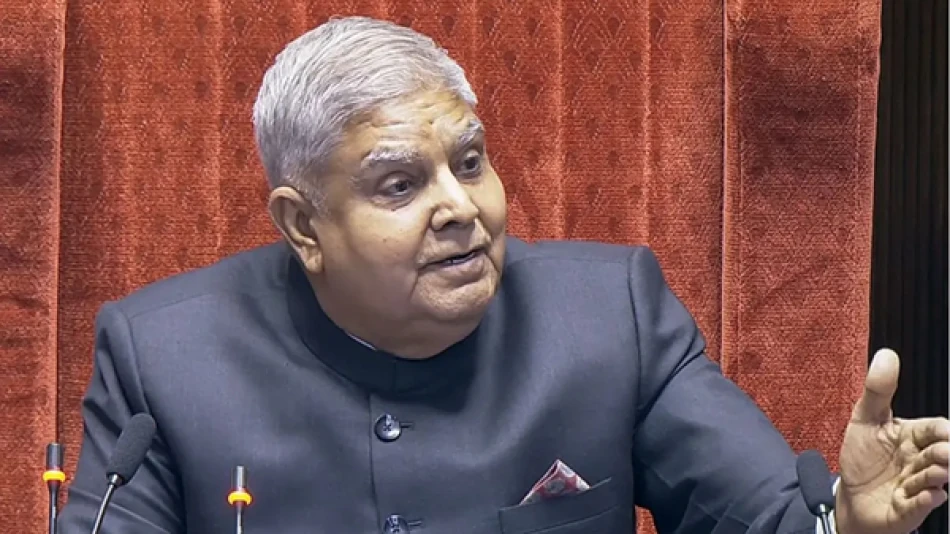
Indian Vice President Resigns: A Surprising Departure Shakes the Political Landscape
India's Vice President Dhankhar Resigns Mid-Term, Creating Constitutional Succession Gap
Jagdeep Dhankhar, India's 74-year-old Vice President, submitted his resignation on Monday citing health concerns, cutting short his five-year term that began in August 2022. The unexpected departure creates a constitutional void in India's succession hierarchy and forces the ruling BJP to navigate an unscheduled electoral process during a politically sensitive period.
Health Takes Priority Over Constitutional Duty
In a letter addressed to President Droupadi Murmu and shared on social media platform X, Dhankhar stated: "To prioritize healthcare and in compliance with medical advice, I resign for these reasons from the position of Vice President of India effective immediately."
The resignation marks only the second time in India's post-independence history that a Vice President has stepped down before completing their term, underscoring the gravity of Dhankhar's health situation.
Constitutional Implications and Succession Protocol
Dhankhar's departure leaves a critical gap in India's constitutional framework. As Vice President, he served as the automatic successor to the President in case of vacancy, death, or incapacitation. His role as Chairman of the Rajya Sabha (upper house of Parliament) also becomes vacant, potentially disrupting legislative proceedings.
Electoral Process Ahead
The Constitution mandates that a new Vice President must be elected within six months of the vacancy. The election involves an Electoral College comprising all members of both houses of Parliament—a process that will test the BJP's coalition management skills and provide opposition parties with a platform to demonstrate their unity.
Political Ramifications for Modi's Government
Dhankhar's resignation comes at a delicate time for Prime Minister Narendra Modi's administration, which is preparing for crucial state elections and managing coalition dynamics after a reduced mandate in the 2024 general elections. The Vice Presidential election will serve as an early test of political alliances and could influence the broader political narrative.
BJP's Succession Strategy
The ruling party now faces the challenge of selecting a candidate who can secure cross-party support while maintaining ideological alignment. Previous Vice Presidential elections have sometimes seen surprising coalition shifts, making this an important barometer of current political equations.
Institutional Continuity Under Pressure
With President Murmu continuing in her role, constitutional continuity remains intact, but the absence of a designated successor highlights the importance of institutional stability in the world's largest democracy. The interim period will test India's constitutional mechanisms and the smooth functioning of its parliamentary system.
The resignation also raises questions about age and health considerations for senior constitutional positions, particularly as India's political leadership continues to include several septuagenarians in key roles.
Most Viewed News

 Layla Al Mansoori
Layla Al Mansoori






